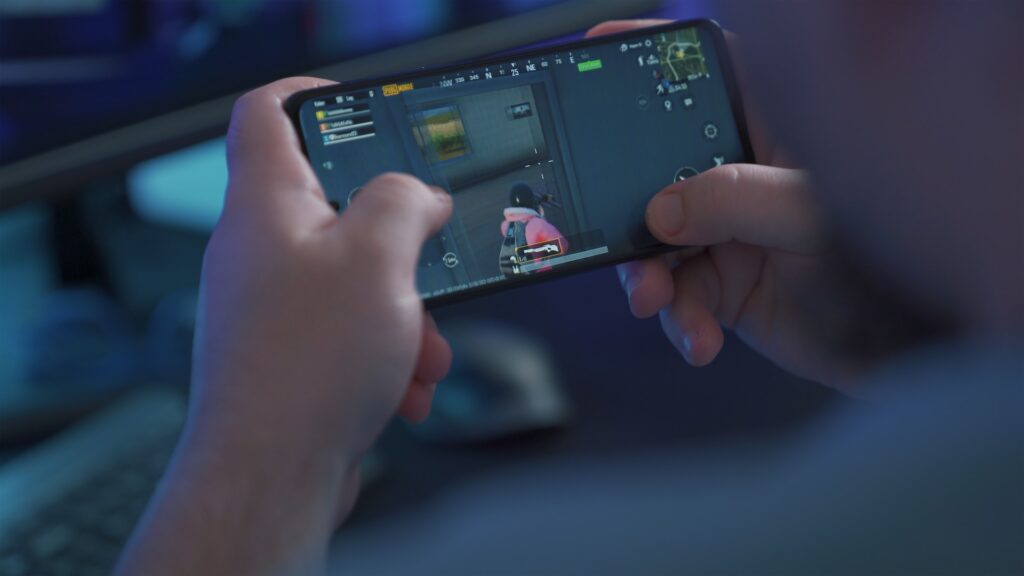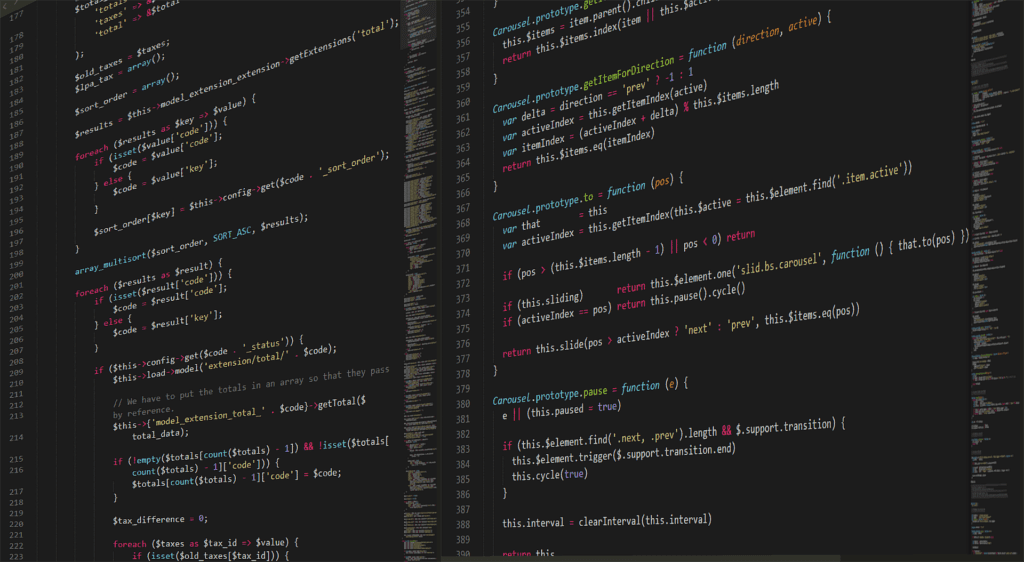Believe it or not, recent research conducted by Statista shows that the gaming market will be worth $268.8 billion by the end of 2025, growing almost 50% in size from 2020. And this is hugely thanks to mobile games, which took over the world by storm.
To be fair, it’s not surprising that mobile games are everywhere now – we keep our phones at arm’s reach for most of our days, and there are games for every niche out there. It’s an easy, quick way to entertain oneself during long commutes, unending breaks, and when you want to procrastinate at your job, but can’t access Reddit.
Games require a variety of professionals to be created, with the developer being the key one. However, one of the most frequently asked questions posed by developers trying to break into the mobile game industry is the following: Android vs iOS – which one is better?
In this article, we’re going to explore and compare some of Android’s and iOS’s core traits, unraveling their pros and cons. Let’s get started!
Android vs iOS: which one is better for game development?
Market share and user base
The market share and user base are significant factors to consider when developing games for mobile platforms. According to Statcounter, Android has been the dominant force in the mobile OS market for years.
As it stands now, Android’s staggering 70.3% market share provides a massive potential user base for game studios to tap into. iOS’s 29.2% market share might pale in comparison to Android’s, but it’s still a substantial user base comprising billions of individuals all over the world.

Revenue potential
Looking at these figures, it might seem that developing games for Android is the obvious, straightforward way to go, but they don’t show us the whole picture. Indeed, games released for Android devices will usually have a higher number of installs, but that doesn’t mean they are generating lots of revenue.
While games for both mobile platforms can be extremely successful and generate millions of income every month, it’s fundamental to remember that games generate revenue in three main ways:
- In-app purchases (IAPs): also known as microtransactions (MTXs), they generate money by allowing players to purchase virtual goods, cosmetics, boosts, and content within the game through real money. Examples of popular IAP options offered by developers include a one-time fee to disable ads, time skips, and energy recharge;
- Install fees: popularly known as “premium games,” some titles require the player to play before they can play the game. They usually have higher quality standards compared to free games, but that’s not always the case;
- Advertisements: last but not least, ads are everywhere – just take a quick look around you and your favorite websites – and it’s no different with games! They are a staple in mobile games and can be extremely lucrative with a player base massive enough. While it’s commonplace for developers to display banner ads within the game, some opt to offer players a small reward for watching a video ad, making both parties happy.
Free games usually employ both IAPs and advertisements as monetization methods, whereas premium games might opt to skip IAPs. Ultimately, the business model will depend on the game’s genre.
For instance, casino and slot machine games generate revenue mainly through microtransactions, with advertisements only making around a fourth of that value. Arcade and casual games, on the other hand, tend to generate twice as much revenue through advertisements than IAPs.

Audience
Another thing to consider is your target audience, as iOS and Android users are not evenly distributed across the globe. The former is much more prevalent in English-speaking countries and Western Europe, whereas the latter is the dominant smartphone OS in other parts of the world.
iOS players also tend to be wealthier and more likely to buy microtransactions than their Android counterparts, who are much more concerned with getting the “best bang for their buck.”
As such, when thinking about the monetization strategy for your game, taking some time to analyze your intended target audience is key. Generally speaking, if you want to rely on installation fees and in-app purchases, iOS is more likely to be more profitable, whereas Android takes the crown if your income stream will come mainly from advertisements.
Development costs and tools
In terms of development tools, both Android and iOS offer their own environments and SDKs (software development kits). For Android, there is Android Studio, the official IDE (integrated development environment), which is available for free. If you’re developing for iOS, then Xcode is a free IDE created by Apple, but there’s a catch: it’s only available for the macOS.
Programming languages
Both Android and iOS use largely different programming languages for game development. Android developers can use the world-renowned Java and Kotlin, which is gaining traction due to its concise syntax and ability to work with Java, while iOS requires Objective-C or Swift. Generally speaking, Swift is considered an easier language to learn than Java and Kotlin, so beginners should take less time to get up to speed when developing for the iOS environment.
It’s also important to note that Android is built on an open-source platform, which lets developers access its source code and customize it to suit their needs, making it very flexible and versatile. This is not something iOS developers get to enjoy, providing these titles security and stability at the potential cost of creativity and innovation.

Publishing costs
In terms of publishing costs, Android is definitely the winner here. Before you can upload and publish your games to their respective digital platforms, you need to get a developer account. To get one yourself, you only need to pay Google a one-time fee of $25. On the other hand, Apple charges a yearly fee of $99 for a developer account.
The difference might not seem like much, but it can be a small fortune for indie developers in poorer countries trying to break into the video gaming industry.
It’s also worth noting that Google’s streamlined review process allows for faster game and app submissions, with the entire process happening within hours. Apple’s, on the other hand, might lead to potential delays and additional costs for developers with their stricter guidelines, with the process taking on average a day or two.
Development speed
Aside from factors that hinder game development speed, such as increased complexity, highly detailed game assets, and deep, progressive game mechanics, developing games for iOS is usually faster.
This happens not only because Swift is easier to learn and more concise than Java, which itself is a verbose language, but because testing iOS games is much faster than testing Android ones. The latter’s emulators tend to be slower than the former’s, and then the developers must test the game on several devices – mobile game studios often keep multiple phone models specifically for compatibility testing purposes, as it’s key for maximizing the game’s reach.
iOS vs. Android for Game Development: Choosing the Right Platform
When it comes to game development, both iOS and Android have their unique strengths. iOS, found on Apple devices like the iPhone, offers a tightly controlled ecosystem, ensuring that games run seamlessly on a variety of Apple products, from the iPhone SE to the high-end iPhone 15 Pro Max.
With regular iOS updates and a dedicated user base, game developers have a stable and secure environment to create engaging experiences. Android, on the other hand, can be found on a wide range of devices, including high-end Android phones like the Samsung Galaxy series and more affordable options. It runs on Android 12 and offers a diverse platform for game development.
While the iOS vs. Android debate continues, it’s essential to consider factors like iOS’s robust security updates and the Android ecosystem’s flexibility when deciding which platform is better suited for your game development goals.
So, which one is better?
The answer to that question depends primarily on your business model and target audience, but there is a variety of other factors to consider. Let’s recap some of the key takeaways from this post.
Benefits of developing games for Android:
- It has the biggest market share out of all mobile operating systems, which gives it huge money-making potential;
- Incidentally, it also gets more app installs when compared to the same games on iOS, which makes it an amazing environment if you’re looking to generate revenue primarily by displaying ads and videos;
- Google Play is less strict about game requirements, and the publishing costs are much tamer, costing a fee of $25 for a lifetime developer account;
Benefits of developing games for iOS:
- Even though it’s not as popular as Android, the iOS platform is everywhere in Anglophone and many Western European countries, which a user base still comprising billions of users;
- There are fewer devices and they get constantly updated to the latest versions, so there is less testing to do;
- The average iOS gamer spends more on IAPs than the average Android gamer, making iOS the best environment for games with IAPs and/or install fees;
In conclusion, it’s crystal clear that both platforms offer unique pros and cons, but whether you’re choosing Android, iOS, or going for cross-development is ultimately up to you!
And if you ever feel like you need some help with game development services, we are here to help you out. Our team of 70+ experts specializes in creating engaging and innovative games with Unity and Unreal engines from scratch, designing the core game mechanics, handcrafting all its assets, and developing all its parts before assembling it into a unique, exhilarating experience.
Whether you’re looking to develop a game for Android or iOS, or even for PC and other gaming platforms, we’ve got you covered. Active in the industry since 2010, we’ve worked with clients of all sizes, offering them custom game development solutions tailored to their needs. To get started with Main Leaf, you only need to request a game quote below!

